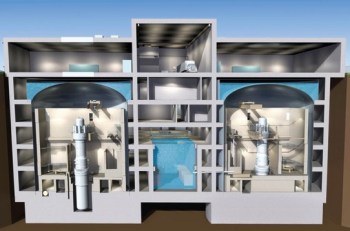 Energy industry experts think Britain could get most of its electricity from small modular nuclear reactors (SMR) by the mid-2020s, according to a Monday report by Reuters.
Energy industry experts think Britain could get most of its electricity from small modular nuclear reactors (SMR) by the mid-2020s, according to a Monday report by Reuters.
“The real promise of SMRs is their modularisation. You can assemble them in a factory with an explicable design meaning consistent standards and predictable costs and delivery timescale,” Anurag Gupta, director of infrastructure at the consulting firm KPMG, told Reuters.
About half of Britain’s power plants will be shut down by 2030 as older conventional nuclear plants end their operational lives, and coal plants are shut down to meet the country’s global warming goals. Experts say SMRs could provide the U.K. with power that’s more reliable and cheaper than wind, solar and conventional nuclear plants.
Britain has already pumped $431 million into SMR research, hoping to replace the country’s problem-plagued Hinkley Point nuclear power project, which has been repeatedly delayed.
America’s Tennessee Valley Authority (TVA) submitted the first-ever permit application to the Nuclear Regulatory Commission (NRC) for an SMR in May. Power companies in Idaho and Utah announced in June they intend to build the world’s first SMRs. The NRC still does not have a working regulatory process for modular reactors, so the project could be bureaucratically delayed until 2024.


















